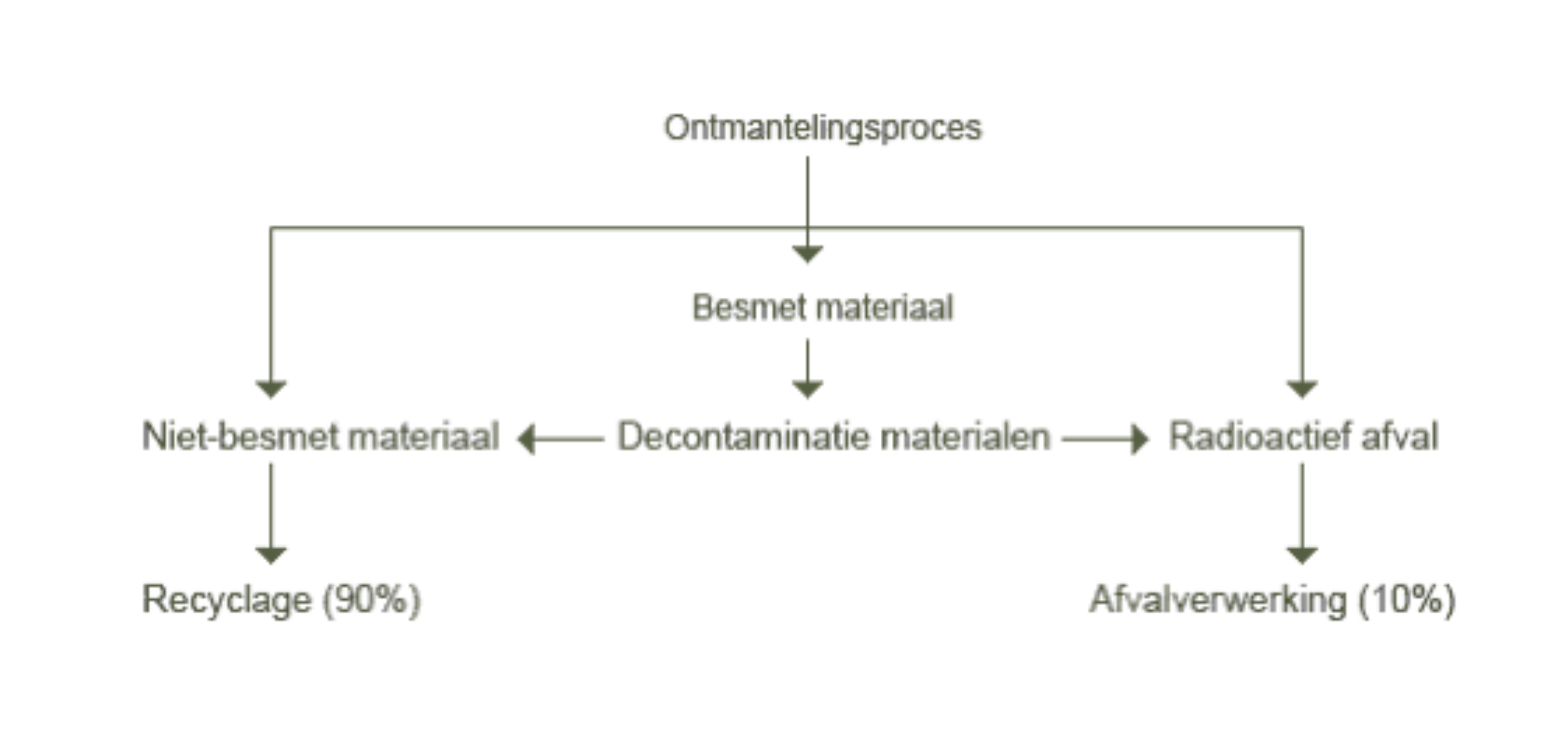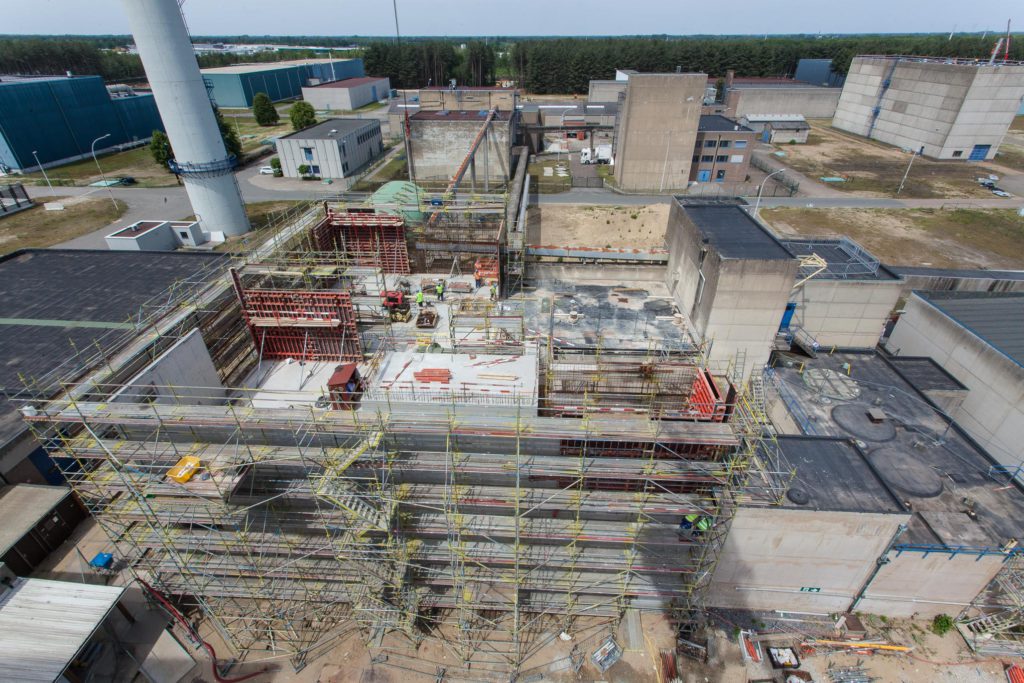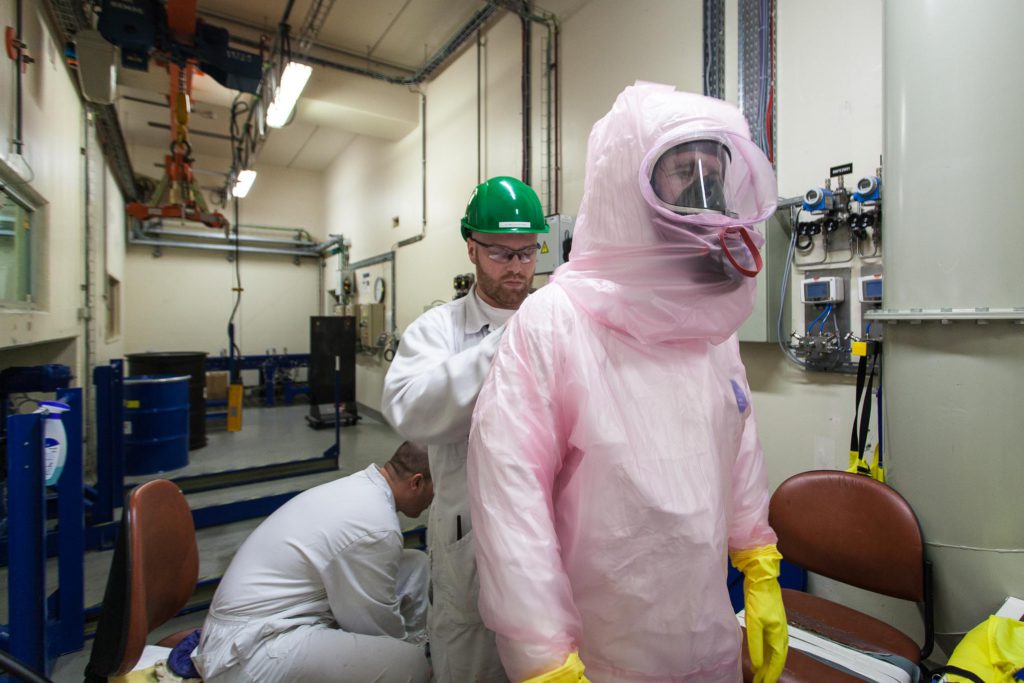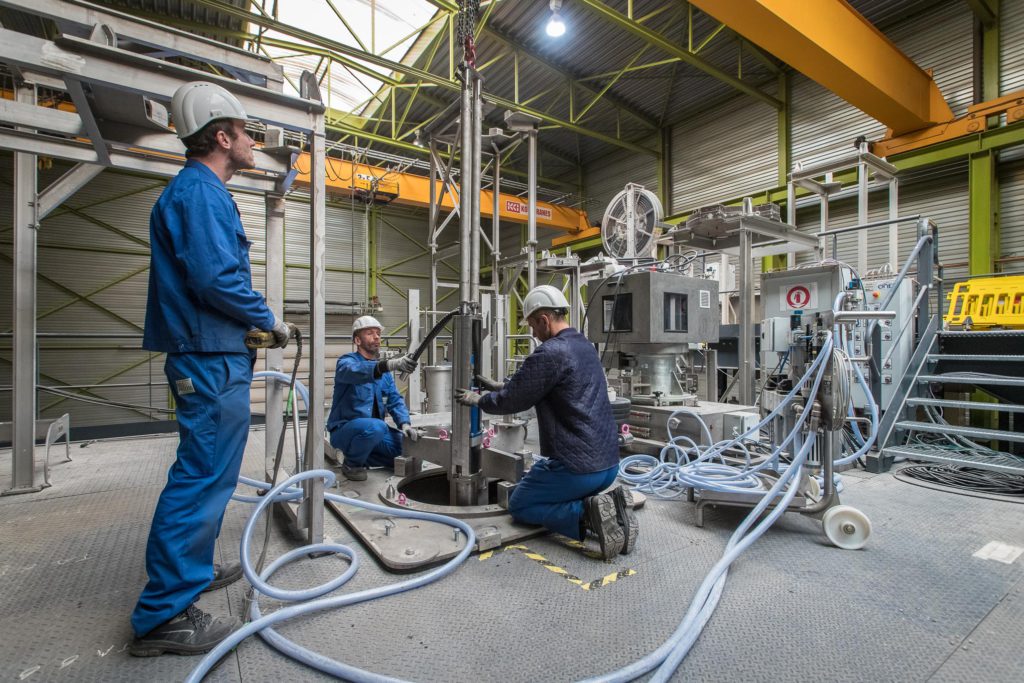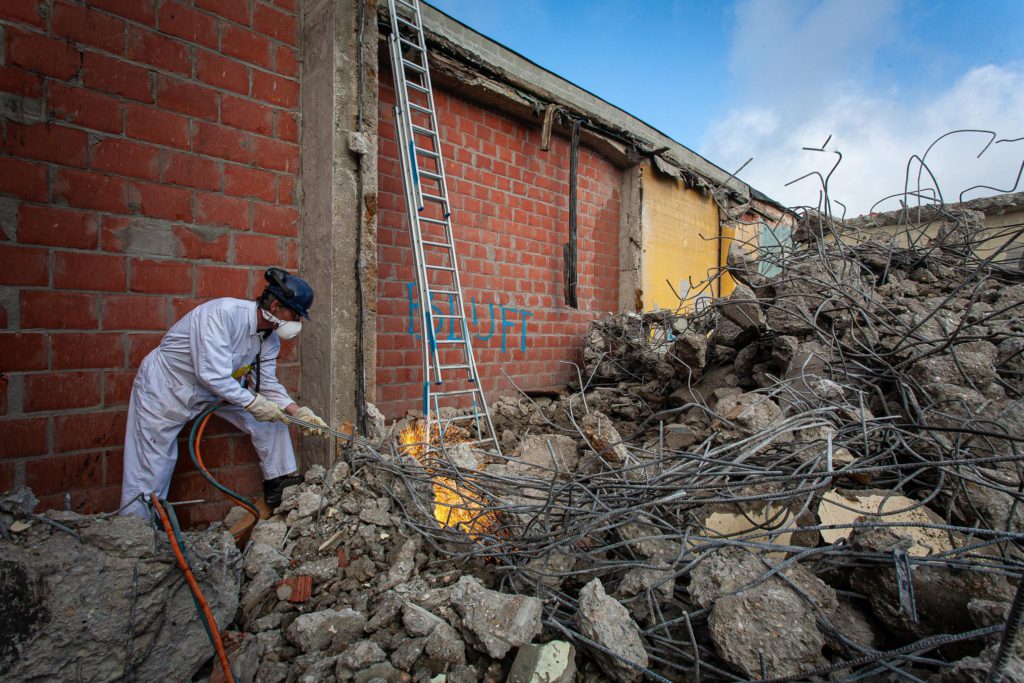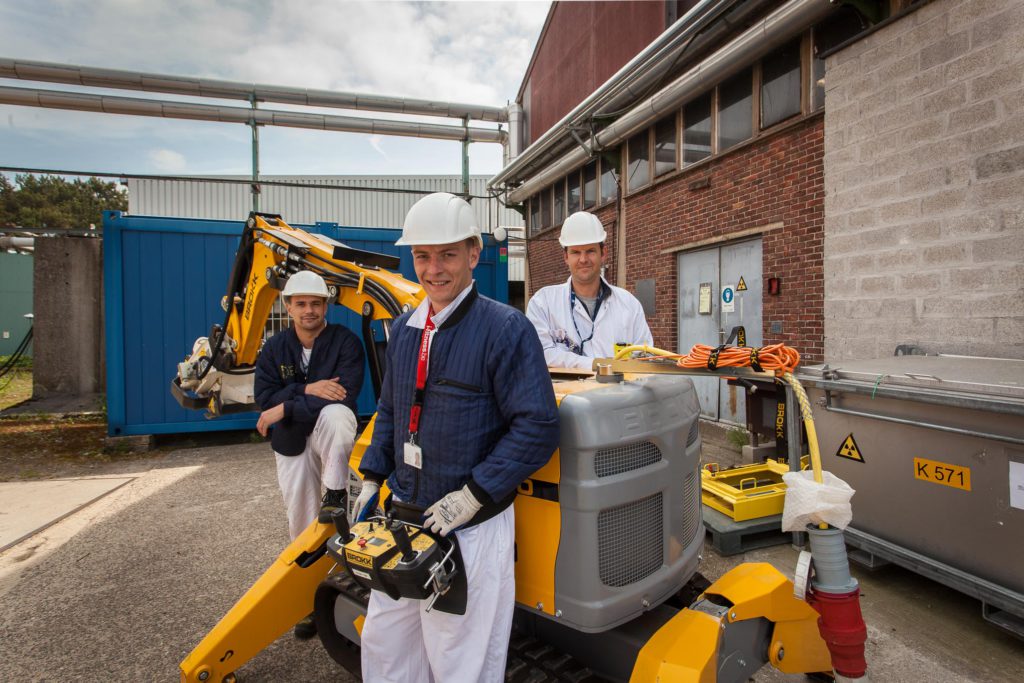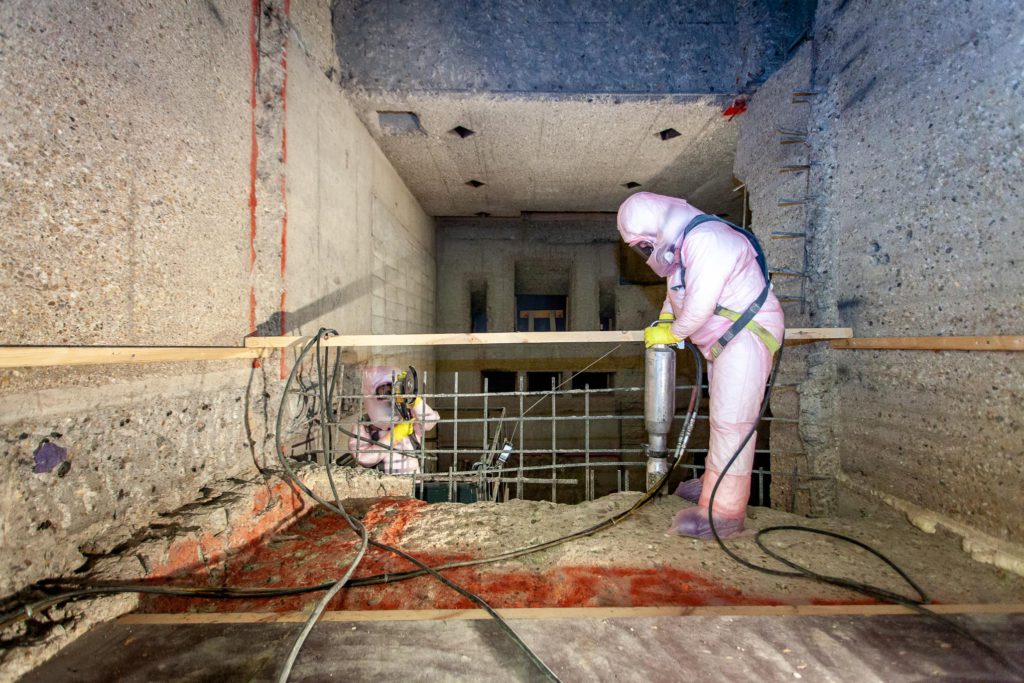Nuclear installations, which are no longer used, need to be decontaminated and dismantled safely and responsibly. The goal is to recycle the majority of the decontaminated buildings and installations as non-radioactive secondary material and to minimize the amount of radioactive waste produced.
The radioactive material is removed by cutting or scraping techniques, which sometimes involves scraping entire concrete walls. Only following meticulous measurements, can buildings be free-released, meaning they can be demolished. Samples of the demolished buildings are measured again before being released for re-use in the conventional industry or as conventional waste.
In order to achieve maximum decontamination of materials and installations, Belgoprocess made substantial investments in research in new technologies. For example, Belgoprocess developed an innovative dry abrasive blasting installation that is based on the principle of impact of metal grit on concrete and metal surfaces to remove surface contamination. Belgoprocess also made substantial developments in the area of shaving techniques. As a result of these and other types of installations and tools, Belgoprocess can free release 91% of its decontaminated material for reuse in the conventional industry.

